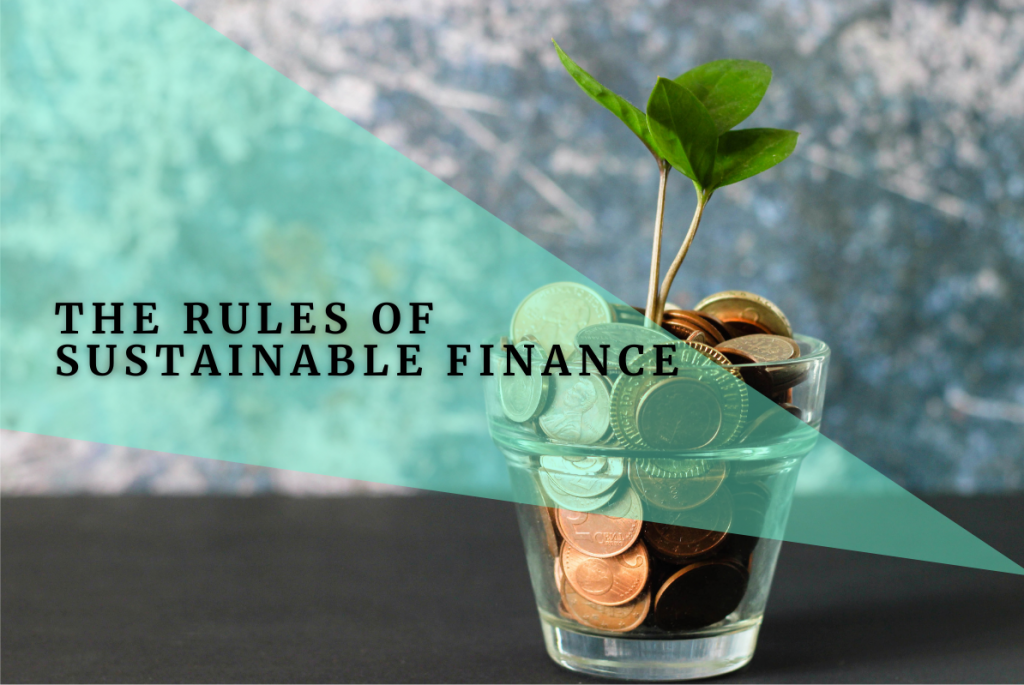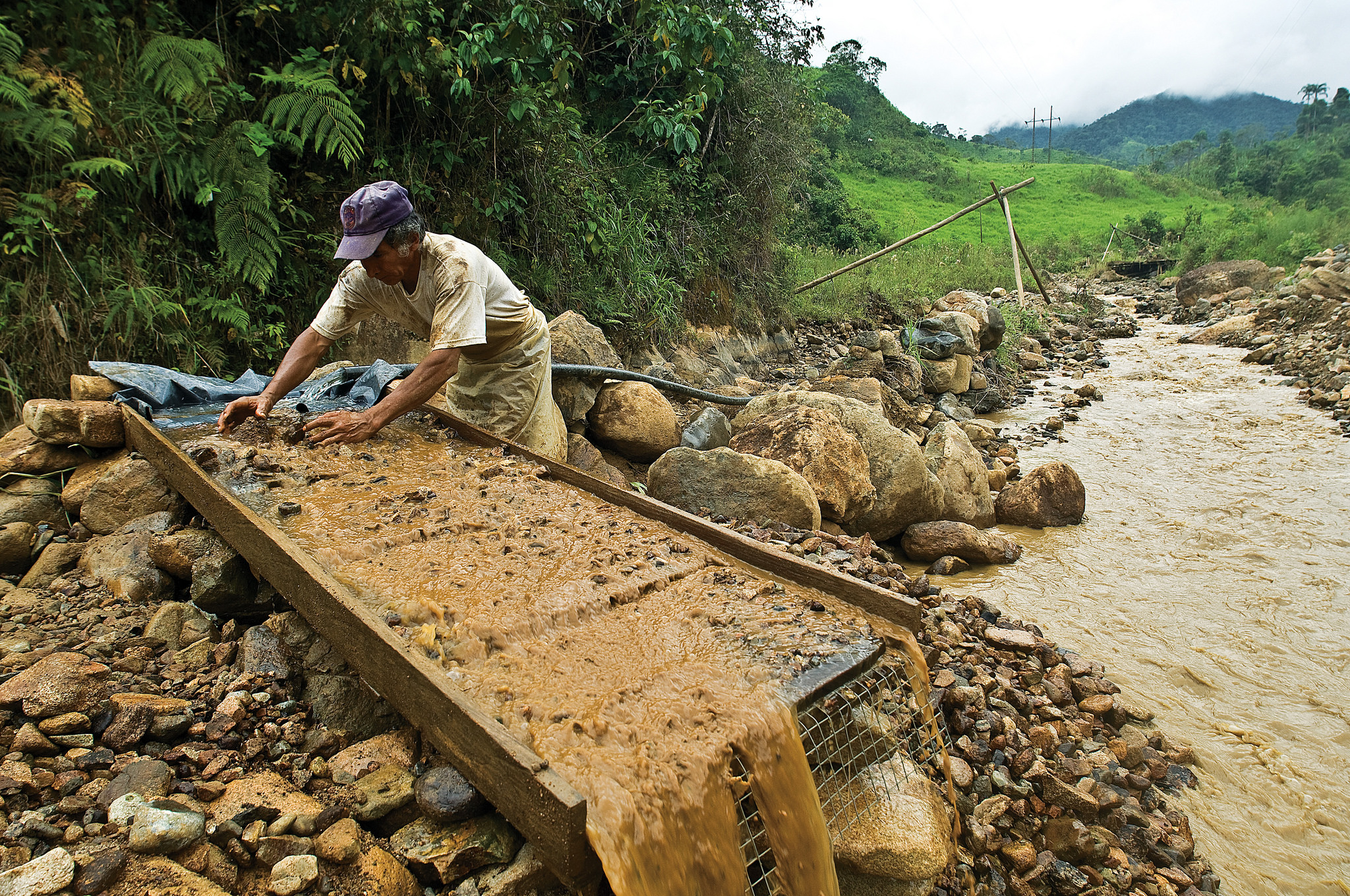Anna Stünzi studierte Psychologie und Wirtschaftswissenschaften an den Universitäten Zürich und Kopenhagen und promovierte am Center for Economic Research der ETH Zürich. Sie arbeitet aktuell als Postdoctoral Fellow an der Universität St Gallen, hat eine Affiliation am Potsdam Institut für Klimafolgenforschung (PIK) und doziert an der Universität St Gallen und der ETH Zürich. Ebenfalls ist sie Mitglied der Geschäftsleitung der GOE mbH. Anna Stünzi ist seit 2011 Mitglied von foraus. Sie ist Co-Autorin mehrerer Publikationen, war von 2016 bis 2019 Co-Leiterin des Programms Umwelt, Energie und Verkehr und hat 2017 das Projekt Sustainable FinTech mitgegründet und aufgebaut. Von November 2019 bis April 2023 war sie Präsidentin von foraus.
Publications by Anna Stünzi

In „Hinausschauen – 26 globale Entwicklungen und die Schweiz“, 30 authors from the foraus network anlyse global challenges – concise, pointed and well-founded.
The book describes how critical hot spots, technological trends and governance & economic systems will develop and what it means for Switzerland’s foreign policy. It describes a world in which Switzerland must act, react and position itself.
Hinausschauen offers impulses to engage in the discussion about Switzerland’s position in the years to come.
Go to our book store to buy the foraus book!
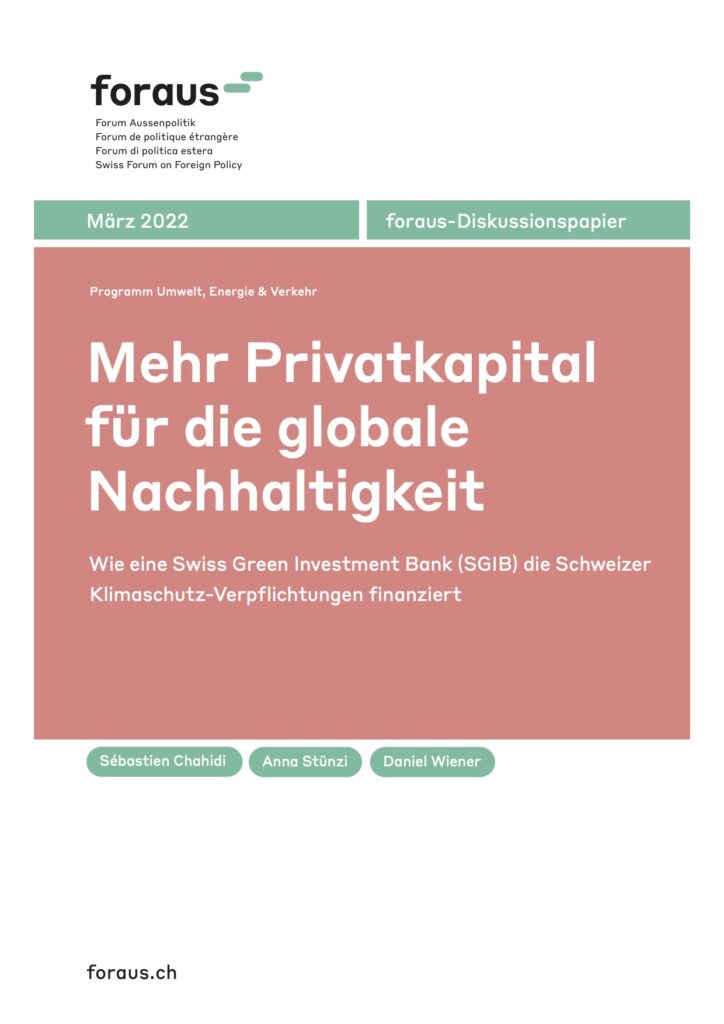
In diesem Diskussionspapier wird die Gründung einer Swiss Green Investment Bank (SGIB) mit dem Mandat, die internationale Klimafinanzierung und die dazugehörige Mobilisierung privater AkteurInnen sicherzustellen, analysiert. In den internationalen Klimaverhandlungen haben sich die Industrienationen verpflichtet, gemeinsam ab 2020 jährlich 100 Mrd. USD bereitzustellen, um Entwicklungsländer bei der Finanzierung von Emissionsreduktionen und Anpassung an den Klimawandel zu unterstützen. Die Schweiz möchte einen jährlichen Betrag von 450-600 Mio. USD beitragen. Mindestens ein Drittel davon soll durch die Mobilisierung von Privatkapital finanziert werden. Die jetzigen Ansätze sind dafür ungeeignet, es braucht explizit auf diese Mobilisierung ausgerichtete Finanzierungsvehikel. Eine SGIB könnte diese Mobilisierung privater AkteurInnen sicherstellen. Mehrere Länder, wie Grossbritannien, Deutschland und Schottland haben Green Investment Banks (GIB) erfolgreich aufgebaut. Üblicherweise übernimmt eine GIB die Rolle einer Pionierin, die Projekte und Investitionsvehikel für private Kredite zugänglich macht. Im Gegensatz zum nationalen Fokus der meisten GIBs soll die SGIB die globale Nachhaltigkeits- und speziell die internationale Klimafinanzierung der Schweiz unterstützen. Erste Schritte zur möglichen Umsetzung einer SGIB werden vorgestellt.
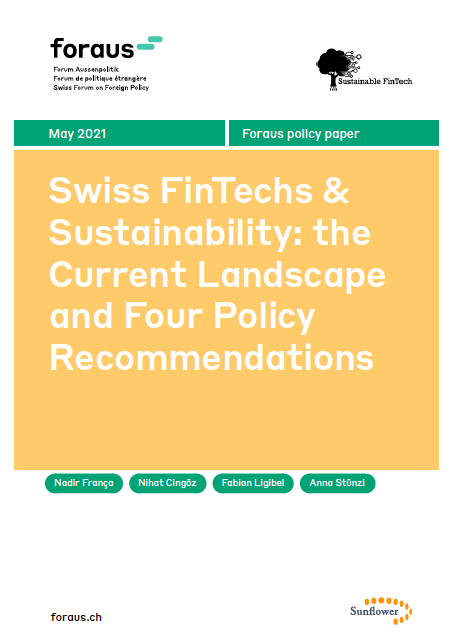
In a comprehensive mapping of the digital, sustainable finance landscape, the authors show that the combination of digitalization and sustainability in the financial sector can play an important role in the implementation of the 2030 Agenda and the Paris Climate Agreement. In recommendations for action, they propose concrete steps to better exploit the potential of digital, sustainable finance and to optimally position the Swiss financial center in this internationally competitive field of the future.
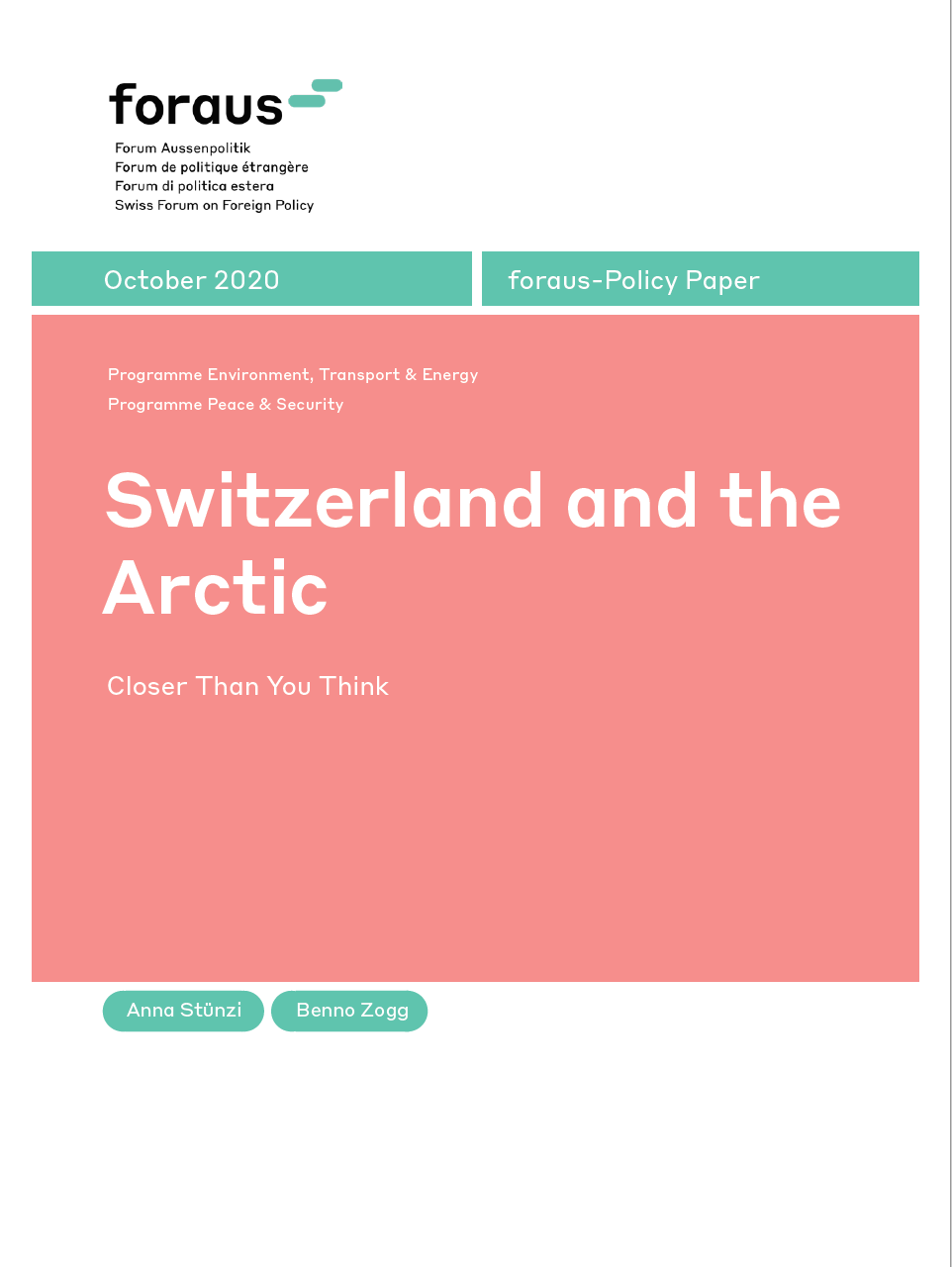
As ice caps are melting, the Arctic receives unprecedented attention from states in the region and from other major powers. Trade routes for international shipping and some of the Arctic’s vast resources are becoming more accessible. Increased interests and activity in the Arctic bear opportunities and risks in two main areas: environmental and security. Even though the Arctic appears far off, both are also of concern to Switzerland.
The proposed “Swiss Vision for the Arctic” imagines the kind of Arctic Switzerland would like to see and to which it could and should contribute. Based on a Swiss interest to mitigate climate change and environmental hazards, this vision highlights that commercial activities and regional development in the Arctic need to be pursued in line with the Sustainable Development Goals (SDGs), and to the benefit of the local population. As Switzerland’s security and prosperity depend on a functioning European and international order, the vision foresees a peaceful resolution of disputes through legal mechanisms, transparency about security perceptions, and a limitation of military activities, guided by the principle of human security.
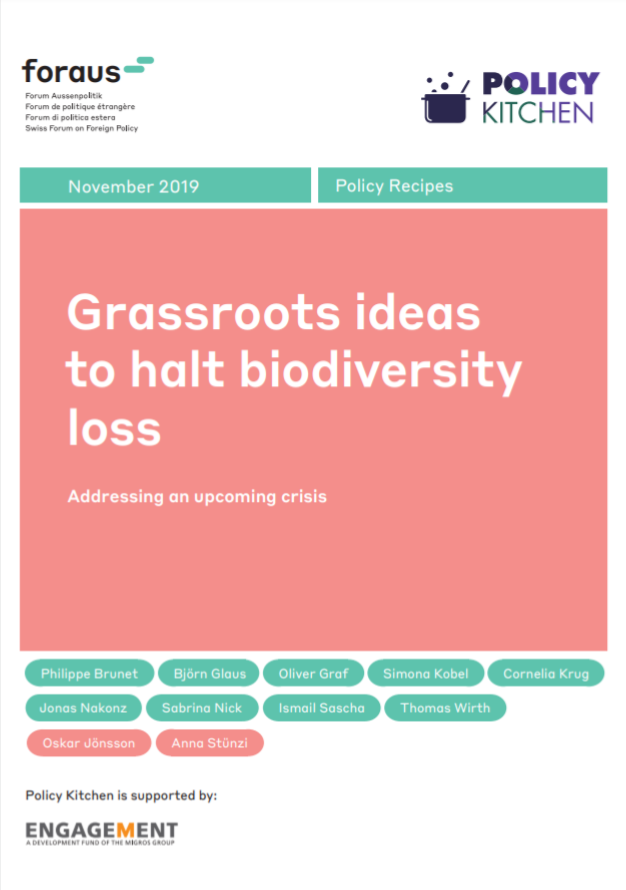
Biodiversity is in a desolate state. In their first report released in May 2019, the Intergovernmental Science-Policy Platform on Biodiversity and Ecosystem Services (IPBES) finds that biodiversity is declining at rates faster than at any time in human history, threatening ecosystem functions critical to human survival and wellbeing. While the report is novel in terms of its scope and multilateral backing, the overall trends were long known, yet largely outside of the awareness of society. That’s why, in autumn 2018, foraus set out to crowdsource innovative ideas on how to tackle the biodiversity crisis through a newly developed online policy innovation tool: Policy Kitchen. Together with experts, foraus defined three challenges with a link to foreign policy, in which action is particularly needed: How to square biodiversity conservation and economic development? How to make trade more biodiversity-friendly? And how to improve global governance around biodiversity conservation? foraus discussed these questions with over 100 participants from various backgrounds. The process resulted in 43 ideas on biodiversity conservation, four of which were developed further and are presented in this publication.
Die Schweiz war 2015 für einen Treibhausgas-Ausstoss von 48.1 Mio Tonnen CO2-Äquivalenten (CO2eq) verantwortlich. Die Emissionen sollen gegenüber 1990 mittels verschiedener Massnahmen um 50% gesenkt werden. Die Schweiz wird deshalb oft als Vorreiterin im Klimaschutz bezeichnet und ist Mitglied der «Paris High Ambition Coalition». Umfassende Klimaziele sind komplex. Darum schlagen die Autor*innen vor, die Forschungs- und Innovationsstärke der Schweiz zu nutzen, um Klimadaten besser zugänglich zu machen. Durch die Gründung eines Swiss Open Climate Data Centers stünden sowohl für Forschung als auch Unternehmen mehr Daten im Klimabereich zu Verfügung. Damit unterstützt die Schweiz einerseits eine wissenschaftsbasierte Klimapolitik. Andererseits ermöglicht der Zugang zu Daten die Entwicklung neuer Technologien und Dienstleistungen und stellt damit einen wichtigen Standortfaktor dar für Unternehmen, welche aus innovativen Lösungen tatsächliche Anwendungen entwickeln. Durch gezielte Förderung von Open Data Projekten, bspw. als Kriterium bei Nationalfonds-Projekten, kann die Schweiz den Datenzugang zusätzlich antreiben.
The humanitarian crisis at the internal and external borders of Europe and the dysfunctionality of the Dublin Regulation call for political responses to the challenges posed by humanitarian migration to Europe. The European countries are deeply divided on how to reform the Common European Asylum System. Attempts to relocate asylum seekers across Europe have not succeeded and revealed the lack of solidarity among European countries. In this paper, we analyse the causes of the current asylum policy crisis in Europe and propose potential policy solutions. We conduct a thorough game-theoretical analysis of the incentive structures of countries and asylum seekers influenced by the rules of the Dublin Regulation. Based on this analysis, we propose a comprehensive reform of the Common European Asylum System.
Die AutorInnen des Think Tanks foraus analysieren die Ursachen der aktuellen Krise der europäischen Asylpolitik. Darauf aufbauend plädieren sie für eine umfassende Reform des Dublin-Systems, die nicht nur eine funktionierende europäische Asylkoordination zu realisieren vermag, sondern der es auch gelingen kann, die divergierenden nationalstaatlichen Interessen auf einen gemeinsamen Nenner zu bringen. Die spieltheoretische Analyse der Anreizstrukturen für Länder und Geflüchtete zeigt, dass die Dublin-Regeln systematische Fehlanreize für alle beteiligten Akteure erzeugen. Staaten besitzen wenig Anreize Ankommende zu registrieren und Ankommende haben Anreize sich der Registrierung zu entziehen. Staaten möchten vermeiden, die Kosten (und den politischen Preis) für den Flüchtlingsschutz zu übernehmen und versuchen stattdessen die Geflüchteten an ihre europäischen Nachbarn abzuschieben. Geflüchtete möchten in jenem europäischen Land einen Antrag stellen, in dem sie sich die besten Zukunftsperspektiven erhoffen und vermeiden deshalb in den meisten Fällen, bereits im Ersteintrittsland registriert zu werden.






